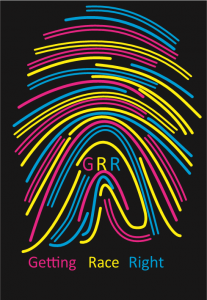
Once you begin to notice racism, you’re going to notice a lot of it. It’s all over the place, and if you want to spend more time being antiracist, you’re going to have to decide whether to respond and, if so, how. Those of us who are White have a particular obligation in this regard. It’s a moral duty, certainly, but it’s also the case that White people with racist beliefs may simply be more likely to listen to us than to people of color.

Kevin Munger (2017), a political scientist at Penn State, did a clever study in which he created fake twitter accounts, some apparently owned by White men and others apparently owned by Black men. When real twitter users, all White men, used a racial epithet to describe Black people, these accounts responded with an admonition: “Hey man, just remember that there are real people who are hurt when you harass them with that kind of language.” Munger found that when the admonition appeared to come from another White man, the real twitter users cut back on their racist terminology, at least for a few weeks, and especially when the admonishing account appeared to have a lot of followers (a sign of high status). When the admonition appeared to come from a Black man, regardless of status, the twitter users didn’t cut back, and sometimes let loose with even more racism directed at that account.
Those of us who are White, then, need to use our insider status to speak up and make a difference in our spheres of influence. It isn’t always easy. If you’re looking for a silver bullet, I’m not your guy (and I don’t know who is). But here are a few reflections I hope you find useful.

There are those who say we should speak up every time we see or hear something racist. I agree that speaking up should be the default, but I also know there are few absolutes in life. I think back to Econ 101 and try to calculate a quick cost-benefits ratio. Sometimes I don’t believe there would be any benefit. Sometimes I think the costs would be too high (e.g., if I’m in the middle of an important conversation focused on another topic). As I said, the default should be to speak up, but you have to decide each case for yourself. If you don’t say anything, and regret it later, you likely can cycle back: “Remember the other day when we were talking about . . .?”
If you do decide to talk with someone who has said or done something racist, here are some things to keep in mind:
Remember that everyone deserves respect, even if they aren’t giving it.
That is both a moral imperative and a strategic stance. It is, 99% of the time, the right thing to do. But it also can help create an opportunity for the other person to reflect and, perhaps, reconsider.

Carl Rogers, one of the 20th century’s most influential psychotherapists, wrote about this paradox—that the more people feel accepted, the more likely they are to change. This is from his best-known book, On Becoming a Person (1961):
“[T]he curious paradox is that when I accept myself as I am, then I can change. I believe that I have learned this from my clients as well as within my own experience that we cannot change, we cannot move away from what we are, until we thoroughly accept what we are. Then change seems to come about almost unnoticed. . . [T]he more I am willing to understand and accept the realities in myself and in the other person, the more change seems to be stirred up.”
Ask yourself this question: when was the last time you changed your mind because somebody argued with you? It happens, but not often. Usually, we change our minds when we have the motivation to reflect on something, and we feel safe and secure enough that we don’t have to defend ourselves to others. You can’t force that on people, of course, but you can increase the odds it will happen by letting them know you respect and care for them.
Writing in The Atlantic, Arthur Brooks suggests that when we talk with someone with whom we disagree, we do not enter into the conversation hoping to change their mind. Instead, he says, “Stop using your values as a weapon, and start offering them as a gift.” Not in a condescending way, of course, but an offering made in good faith and humility. I suspect this does a couple of things. It makes us less likely to trigger defensive reactions in the person with whom we are speaking and it also helps us focus on what we want to say rather than on whether we are winning the argument.

Remember this, too: Historian Ibram Kendi (2019) points out that almost everyone sometimes does or says something that reflects a racist perspective. Don’t assume, initially at least, that what this person has just said or done tells us everything we need to know about them.
Every person is different, every relationship is different, every context is different.
You absolutely have to take that into account. For example, even at my age (I was born in 1956), I show more deference to the generation above me than I do to those in my own generation. Another example: I have a particular responsibility to my students that shapes how I talk with them. And family—well, family is forever. Considerations like this have to factor in when deciding on your approach.
It also helps to reflect on the individual characteristics of the person with whom you are talking. Do your best to speak their language and incorporate things they care about. Address the values they hold. For example, some people respond best to personal stories. Others want to know the stats and the research results. Be authentic, but do your best to scratch where they itch.
Focus on what the other person believes, and why.

Ask questions. Open-ended questions. Why questions. That does so many things for you. It demonstrates your genuine (I trust) interest in the other person, even if you vehemently disagree with them. It also gives you a chance to understand better the context within which someone’s viewpoint is situated, making it easier to understand why they hold their beliefs and–perhaps—offering some insight into how best to respond.
Political Scientists Josh Kalla and David Broockman (2020) studied the “non-judgmental exchange of narratives” and found it a useful tool in reducing people’s prejudice toward immigrants and transgender people. This strategy is a combination of sharing stories with someone and listening non-judgmentally to the stories they offer in return. The findings supported Carl Rogers’ belief that people are more likely to change once they feel accepted for who they are right now.
In the Sojourners magazine daily devotional for January 21, 2022, the prayer of the day was short and simple: May my questions be generous and seasoned with grace. Generous, grace-filled questions shouldn’t be the only tool in your box, but it’s a good tool to use first.
The topic is different, but the process is similar: check out the CDC’s recommendations for how to talk with people who aren’t sure they want a Covid-19 vaccination. There are some transferable skills in their recommendations.
Tell your story, too, when the time comes.
Don’t lead with this, as a rule, but even if the other person isn’t asking you questions, use the conversation as an opportunity to explain your beliefs and how you came to hold them. Tell about an experience you found helpful in becoming antiracist. Don’t use it to argue, just to explain, to give them insight into why you believe what you do. It could be a simple fact: “Actually, White people and people of color use drugs at pretty much the same rate.” Or a personal experience or observation. Here’s one I’ve needed to use several times: “I teach quite a few students who grew up in high-poverty neighborhoods of color. I’m impressed with their talent, their work ethic and the support they receive from their families.”
Carl Rogers recommends sharing our personal experiences with others for this reason (also from Becoming a Person):
“I have almost invariably found that the very feeling which has seemed to me most private, most personal, and hence most incomprehensible by others, has turned out to be an expression for which there is a resonance in many other people. It has led me to believe that what is most personal and unique in each one of us is probably the very element which would, if it were shared or expressed, speak most deeply to others.”

An especially effective experience to share would be one of the ah-ha moments you had on your own road toward antiracism. The late Henri Nouwen, a Dutch-Canadian Catholic priest, wrote a book on pastoral counseling and called it The Wounded Healer (1972), because it focused on “the ways in which the minister can make his own wounds available as a source of healing.” Those of us moving from racism to antiracism can offer much the same.
Most important: Don’t just talk about your convictions–live them.
If this is someone with whom you have an on-going relationship, take your time and look for other opportunities to talk. In the meantime, the way you live your life will be the most effective proclamation of what you truly believe. More on that in another post in this section, How can I embed anti-racism in the way I live my life?
Bottom Line: We all have a responsibility to engage with people doing or saying racist things–especially if we’re White. There is no single best way to do that, so it’s helpful to have a variety of tools in your kit. With practice, you’ll learn how to use each tool and which one is best suited for which circumstance.


Thank a lot!
Hello.
Thank you for sharing this interesting and great article.
Thanks for information.